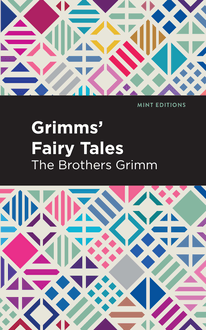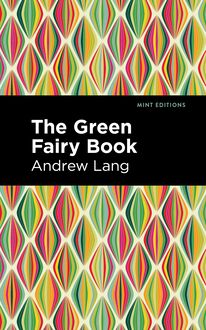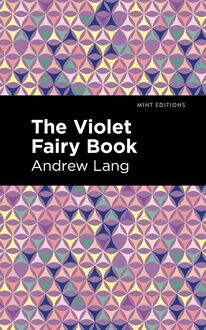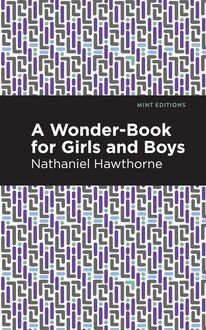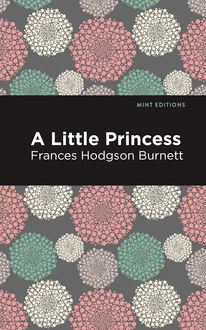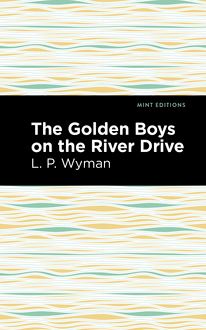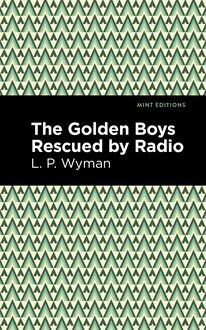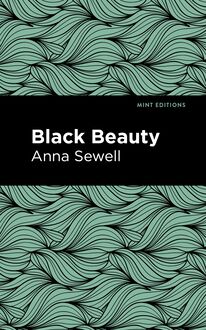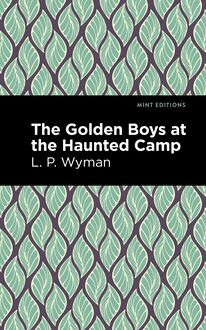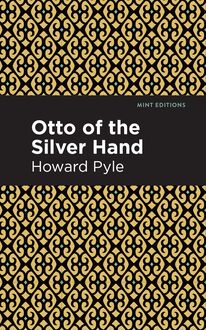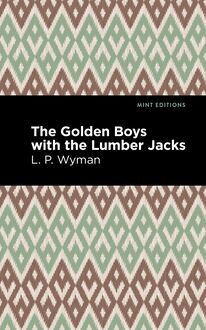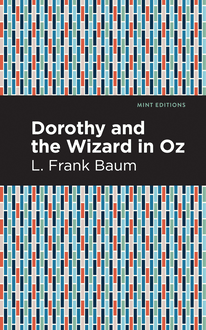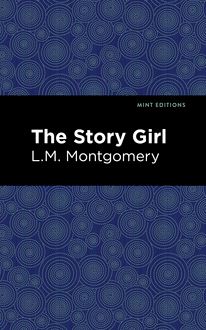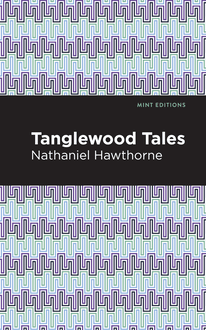-
 Univers
Univers
-
 Ebooks
Ebooks
-
 Livres audio
Livres audio
-
 Presse
Presse
-
 Podcasts
Podcasts
-
 BD
BD
-
 Documents
Documents
-
- Cours
- Révisions
- Ressources pédagogiques
- Sciences de l’éducation
- Manuels scolaires
- Langues
- Travaux de classe
- Annales de BEP
- Etudes supérieures
- Maternelle et primaire
- Fiches de lecture
- Orientation scolaire
- Méthodologie
- Corrigés de devoir
- Annales d’examens et concours
- Annales du bac
- Annales du brevet
- Rapports de stage
La lecture à portée de main
Vous pourrez modifier la taille du texte de cet ouvrage
Découvre YouScribe en t'inscrivant gratuitement
Je m'inscrisDécouvre YouScribe en t'inscrivant gratuitement
Je m'inscrisEn savoir plus
Vous pourrez modifier la taille du texte de cet ouvrage
En savoir plus

Description
Five Children and It (1902) is a children’s fantasy novel by English writer Edith Nesbit. The first book in Nesbit’s beloved Psammead trilogy—which also includes The Phoenix and the Carpet (1904) and The Story of the Amulet (1906)—Five Children and It is a story of childish wonder, adventure, and the power of imagination.
Five siblings move with their parents from London to the English countryside, where they adjust to the rhythms of rural life and spend their days playing and exploring outside. One day, while playing in a local gravel pit, they discover a strange creature with the eyes of a snail, the ears of a bat, a spider-shaped body, and the limbs of a monkey. Known as a Psammead, the being is a sand fairy who grants the children one wish per day—while warning them that whatever they wish for will turn to stone when the sun sets. The children’s fear quickly turns to wonder, and they begin to wish for increasingly ambitious things: a pile of gold coins; the power of flight; superhuman size; a castle. With each wish comes a commensurate adventure, forcing the children to escape more and more dangerous situations. As it grants the children wish after wish, the initially cynical Psammead grows to appreciate their vibrant imaginations and seemingly unquenchable passion for adventure. Five Children and It is masterpiece of fantasy from Edith Nesbit, one of the twentieth century’s leading authors of children’s fiction.
With a beautifully designed cover and professionally typeset manuscript, this edition of Edith Nesbit’s Five Children and It is a classic of English children’s literature reimagined for modern readers.
Sujets
Informations
| Publié par | Mint Editions |
| Date de parution | 05 janvier 2021 |
| Nombre de lectures | 0 |
| EAN13 | 9781513274720 |
| Langue | English |
| Poids de l'ouvrage | 2 Mo |
Informations légales : prix de location à la page 0,0400€. Cette information est donnée uniquement à titre indicatif conformément à la législation en vigueur.
Extrait
Five Children and It
Edith Nesbit
Five Children and It was first published in 1902.
This edition published by Mint Editions 2020.
ISBN 9781513269726 | E-ISBN 9781513274720
Published by Mint Editions®
minteditionbooks.com
Publishing Director: Jennifer Newens
Design & Production: Rachel Lopez Metzger
Typesetting: Westchester Publishing Services
CONTENTS I. B EAUTIFUL A S THE D AY II. G OLDEN G UINEAS III. B EING W ANTED IV. W INGS V. N O W INGS VI. A C ASTLE AND N O D INNER VII. A S IEGE AND B ED VIII. B IGGER THAN THE B AKER ’ S B OY IX. G ROWN U P X. S CALPS XI. T HE L AST W ISH
I
B EAUTIFUL A S THE D AY
The house was three miles from the station, but before the dusty hired fly had rattled along for five minutes the children began to put their heads out of the carriage window and to say, “Aren’t we nearly there?” And every time they passed a house, which was not very often, they all said, “Oh, is this it?” But it never was, till they reached the very top of the hill, just past the chalk-quarry and before you come to the gravel-pit. And then there was a white house with a green garden and an orchard beyond, and mother said, “Here we are!”
“How white the house is,” said Robert.
“And look at the roses,” said Anthea.
“And the plums,” said Jane.
“It is rather decent,” Cyril admitted.
The Baby said, “Wanty go walky;” and the fly stopped with a last rattle and jolt.
Everyone got its legs kicked or its feet trodden on in the scramble to get out of the carriage that very minute, but no one seemed to mind. Mother, curiously enough, was in no hurry to get out; and even when she had come down slowly and by the step, and with no jump at all, she seemed to wish to see the boxes carried in, and even to pay the driver, instead of joining in that first glorious rush round the garden and the orchard and the thorny, thistly, briery, brambly wilderness beyond the broken gate and the dry fountain at the side of the house. But the children were wiser, for once. It was not really a pretty house at all; it was quite ordinary, and mother thought it was rather inconvenient, and was quite annoyed at there being no shelves, to speak of, and hardly a cupboard in the place. Father used to say that the ironwork on the roof and coping was like an architect’s nightmare. But the house was deep in the country, with no other house in sight, and the children had been in London for two years, without so much as once going to the seaside even for a day by an excursion train, and so the White House seemed to them a sort of Fairy Palace set down in an Earthly Paradise. For London is like prison for children, especially if their relations are not rich.
Of course there are the shops and the theatres, and Maskelyne and Cook’s, and things, but if your people are rather poor you don’t get taken to the theatres, and you can’t buy things out of the shops; and London has none of those nice things that children may play with without hurting the things or themselves—such as trees and sand and woods and waters. And nearly everything in London is the wrong sort of shape—all straight lines and flat streets, instead of being all sorts of odd shapes, like things are in the country. Trees are all different, as you know, and I am sure some tiresome person must have told you that there are no two blades of grass exactly alike. But in streets, where the blades of grass don’t grow, everything is like everything else. This is why so many children who live in towns are so extremely naughty. They do not know what is the matter with them, and no more do their fathers and mothers, aunts, uncles, cousins, tutors, governesses, and nurses; but I know. And so do you now. Children in the country are naughty sometimes, too, but that is for quite different reasons.
The children had explored the gardens and the outhouses thoroughly before they were caught and cleaned for tea, and they saw quite well that they were certain to be happy at the White House. They thought so from the first moment, but when they found the back of the house covered with jasmine, and in white flower, and smelling like a bottle of the most expensive scent that is ever given for a birthday present; and when they had seen the lawn, all green and smooth, and quite different from the brown grass in the gardens at Camden Town; and when they had found the stable with a loft over it and some old hay still left, they were almost certain; and when Robert had found the broken swing and tumbled out of it and got a lump on his head the size of an egg, and Cyril had nipped his finger in the door of a hutch that seemed made to keep rabbits in, if you ever had any, they had no longer any doubts whatever.
The best part of it all was that there were no rules about not going to places and not doing things. In London almost everything is labelled “You mustn’t touch,” and though the label is invisible, it’s just as bad, because you know it’s there, or if you don’t you jolly soon get told.
The White House was on the edge of a hill, with a wood behind it—and the chalk-quarry on one side and the gravel-pit on the other. Down at the bottom of the hill was a level plain, with queer-shaped white buildings where people burnt lime, and a big red brewery and other houses; and when the big chimneys were smoking and the sun was setting, the valley looked as if it was filled with golden mist, and the limekilns and oast-houses glimmered and glittered till they were like an enchanted city out of the Arabian Nights.
Now that I have begun to tell you about the place, I feel that I could go on and make this into a most interesting story about all the ordinary things that the children did—just the kind of things you do yourself, you know—and you would believe every word of it; and when I told about the children’s being tiresome, as you are sometimes, your aunts would perhaps write in the margin of the story with a pencil, “How true!” or “How like life!” and you would see it and very likely be annoyed. So I will only tell you the really astonishing things that happened, and you may leave the book about quite safely, for no aunts and uncles either are likely to write “How true!” on the edge of the story. Grown-up people find it very difficult to believe really wonderful things, unless they have what they call proof. But children will believe almost anything, and grown-ups know this. That is why they tell you that the earth is round like an orange, when you can see perfectly well that it is flat and lumpy; and why they say that the earth goes round the sun, when you can see for yourself any day that the sun gets up in the morning and goes to bed at night like a good sun as it is, and the earth knows its place, and lies as still as a mouse. Yet I daresay you believe all that about the earth and the sun, and if so you will find it quite easy to believe that before Anthea and Cyril and the others had been a week in the country they had found a fairy. At least they called it that, because that was what it called itself; and of course it knew best, but it was not at all like any fairy you ever saw or heard of or read about.
It was at the gravel-pits. Father had to go away suddenly on business, and mother had gone away to stay with Granny, who was not very well. They both went in a great hurry, and when they were gone the house seemed dreadfully quiet and empty, and the children wandered from one room to another and looked at the bits of paper and string on the floors left over from the packing, and not yet cleared up, and wished they had something to do. It was Cyril who said:
“I say, let’s take our Margate spades and go and dig in the gravel-pits. We can pretend it’s seaside.”
“Father said it was once,” Anthea said; “he says there are shells there thousands of years old.”
So they went. Of course they had been to the edge of the gravel-pit and looked over, but they had not gone down into it for fear father should say they mustn’t play there, and the same with the chalk-quarry. The gravel-pit is not really dangerous if you don’t try to climb down the edges, but go the slow safe way round by the road, as if you were a cart.
Each of the children carried its own spade, and took it in turns to carry the Lamb. He was the baby, and they called him that because “Baa” was the first thing he ever said. They called Anthea “Panther,” which seems silly when you read it, but when you say it it sounds a little like her name.
The gravel-pit is very large and wide, with grass growing round the edges at the top, and dry stringy wildflowers, purple and yellow. It is like a giant’s wash-hand basin. And there are mounds of gravel, and holes in the sides of the basin where gravel has been taken out, and high up in the steep sides there are the little holes that are the little front doors of the little sand-martins’ little houses.
The children built a castle, of course, but castle-building is rather poor fun when you have no hope of the swishing tide ever coming in to fill up the moat and wash away the drawbridge, and, at the happy last, to wet everybody up to the waist at least.
Cyril wanted to dig out a cave to play smugglers in, but the others thought it might bury them alive, so it ended in all spades going to work to dig a hole through the castle to Australia. These children, you see, believed that the world was round, and that on the other side the little Australian boys and girls were really walking wrong way up, like flies on the ceiling, with their heads hanging down into the air.
The children dug and they dug and they dug, and their hands got sandy and hot and red, and their faces got damp and shiny. The Lamb had tried to eat the sand, and had cried so hard when he found that it was not, as he had supposed, brown sugar, that he was now tired out, and was lying asleep in a warm fat bunch in the middle of the half-finished castle. This left his brothers and sisters free to work really hard, and the hole that was to
-
 Univers
Univers
-
 Ebooks
Ebooks
-
 Livres audio
Livres audio
-
 Presse
Presse
-
 Podcasts
Podcasts
-
 BD
BD
-
 Documents
Documents
-
Jeunesse
-
Littérature
-
Ressources professionnelles
-
Santé et bien-être
-
Savoirs
-
Education
-
Loisirs et hobbies
-
Art, musique et cinéma
-
Actualité et débat de société
-
Jeunesse
-
Littérature
-
Ressources professionnelles
-
Santé et bien-être
-
Savoirs
-
Education
-
Loisirs et hobbies
-
Art, musique et cinéma
-
Actualité et débat de société
-
Actualités
-
Lifestyle
-
Presse jeunesse
-
Presse professionnelle
-
Pratique
-
Presse sportive
-
Presse internationale
-
Culture & Médias
-
Action et Aventures
-
Science-fiction et Fantasy
-
Société
-
Jeunesse
-
Littérature
-
Ressources professionnelles
-
Santé et bien-être
-
Savoirs
-
Education
-
Loisirs et hobbies
-
Art, musique et cinéma
-
Actualité et débat de société
- Cours
- Révisions
- Ressources pédagogiques
- Sciences de l’éducation
- Manuels scolaires
- Langues
- Travaux de classe
- Annales de BEP
- Etudes supérieures
- Maternelle et primaire
- Fiches de lecture
- Orientation scolaire
- Méthodologie
- Corrigés de devoir
- Annales d’examens et concours
- Annales du bac
- Annales du brevet
- Rapports de stage
